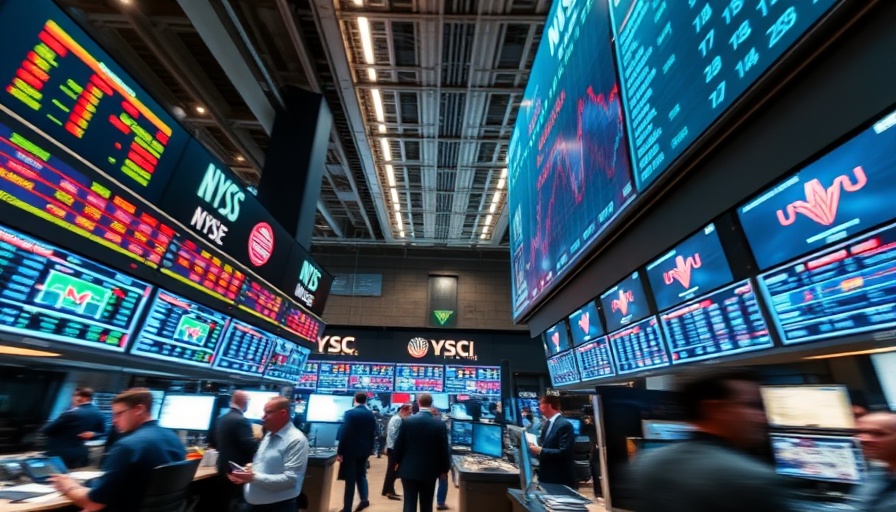
The Global Stock Market Rebound: What It Means for Investors
After the recent announcement that the U.S. and China have agreed to pause their ongoing tariff war, global stock markets experienced a significant surge. This interruption in a conflict that has fueled fears of a looming recession offers a temporary breath of fresh air for investors. However, experts caution that this rally may not be a cure-all, as deeper economic issues linger beneath the surface.
Factors Leading to Market Waves: Timing and Expectations
The trade agreement, albeit temporary for 90 days, is a positive signal for both economies, specifically when corporate earnings remain under pressure due to inflation concerns. Investors have responded positively, pushing stocks higher; for example, the S&P 500 climbed by 3.26%, while the Nasdaq soared by 4.35%. This reaction illustrates how sensitive the markets are to trade news, reflecting the intricate relationship between international politics and economic indicators.
Understanding the Broader Implications of Tariff Deals
Despite the optimistic market response, the root causes of the U.S.-China trade dispute remain unaddressed. Issues such as the U.S. trade deficit and calls from American officials for China to take action against fentanyl trafficking are continuing points of contention. While these matters are not resolved, they cast a shadow over the market's recent gains, hinting that volatility may emerge once news cycles shift back to trade tensions.
Investment Strategies in Uncertain Times
For investors navigating this fluctuating landscape, it’s crucial to develop strategies that allow for portfolio resilience. Here are some approaches to consider amidst global stock market fluctuations:
- Prioritize Portfolio Diversification: Balancing different asset classes can help manage risk during volatile periods. This includes stocks, bonds, and real estate investment trusts (REITs).
- Focus on Dividend Stocks: Companies that offer dividends can provide steady income even when stock prices dip.
- Consider Index Funds or ETFs: Such funds can help diversify investments with lower maintenance costs and better asset allocation.
Each of these strategies can be invaluable when aiming for long-term financial growth while minimizing exposure to short-term market swings.
Risk Factors and Challenges: Navigating Future Uncertainties
The pause in the tariff war prompts questions about future expectations. Indications from policymakers suggest that any lasting agreement may face resistance from ongoing political pressures and the economic climate, which includes rising interest rates and potential inflationary pressures.
Investors should stay alert to economic indicators that may signal shifts—such as employment rates, consumer confidence, and inflation metrics. Understanding these factors enables better risk management.
The Role of Investment Apps and Online Brokerage Accounts
For those keen on entering the market or adjusting their investment strategies, utilizing investment apps and online brokerage accounts provides a valuable edge. These platforms often offer real-time market analysis and educational resources, making it easier than ever for beginners to navigate trading and investment opportunities.
As trading becomes increasingly democratized, understanding the tools available for investment can empower individuals to take informed actions in their financial journeys.
Concluding Thoughts: Staying Informed in an Evolving Market
While the recent stock market rally is a welcome development, approaching investment in this uncertain climate requires diligence and adaptability. Incorporating time-tested strategies can shield investors from potential pitfalls associated with geopolitical tensions and economic fluctuations.
Keeping an eye on external factors and continuously educating oneself on new investing trends ensure that individuals are better equipped to make informed decisions for their financial futures. With economic indicators and potential changes looming, your investment strategies should continuously evolve, adapting to the landscape as it unfolds.
 Add Row
Add Row  Add
Add 



Write A Comment